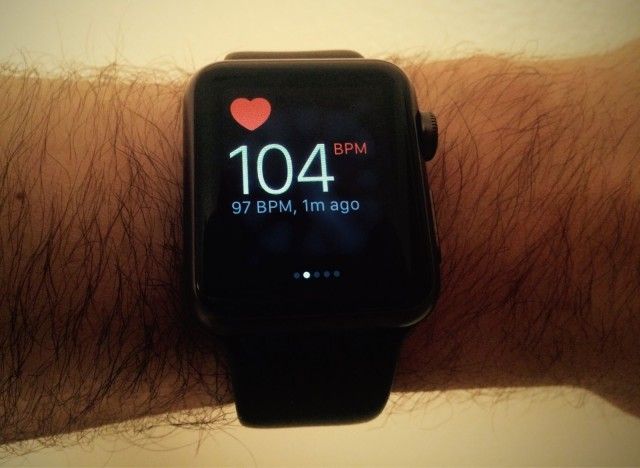The Apple Watch Series 2 may have been a big step forward for Apple’s wearable device, but the company has an even bigger shift planned: Cupertino wants to morph Apple Watch from a fitness tracking device to a full-fledged medical diagnostic tool.
Apple’s ambitions in the mobile health field are no secret secret. Unlike an R&D project like the Apple Car, the company has been openly excited about the possibility of helping diagnose illnesses.
[contextly_auto_sidebar]
“If you drive for a while and your car gets too hot, it says pull over. If you need an oil change, it says check your oil. What’s the equivalent for the body?” Tim Cook said earlier this year at a conference in Amsterdam. “Health is a huge issue around the world and we think it’s ripe for simplicity and a new view.”
Apple has pushed its HealthKit and ResearchKit platforms heavily, along with acquiring various health-tracking companies and medical experts.
The idea of gathering data from users and then letting them know if there is an anomaly is something a number of companies are involved with. Apple is reportedly expanding Apple Watch with various new apps in development, such as one that tracks sleep patterns and another than interprets heart-rate data — building on the Apple Watch’s existing ability to measure heart rate. (Which has already arguably saved lives.)
As someone who’s excited about the whole mobile health field, I’d be excited to see what Apple has planned for this area. One question, however, is how Apple advances from the Apple Watch being a recommendation system (i.e. the equivalent of a family member who advises you to visit the doctor about a certain issue) to a recognized diagnostic tool of its own.
For that to happen, Apple Watch would require FDA approval. It would also need long-term, peer-reviewed studies to show that tech devices can safely take over some jobs currently carried out by physicians.
Based on everyone I’ve spoken to in this field, that’s the time-consuming part of this technology — not necessarily just using sensors to gather data and then utilizing machine learning to draw correlations and conclusions about it.
Would I like to see Apple do this? You bet. At the same time, this is going to be nowhere near as easy as adding greater levels of Apple Watch iPhone independence, larger batteries or any other regular improvements.
In other words, while we may see sleep tracking incorporated into the Apple Watch sooner rather than later, I’m not holding my breath for it to replace my physician just yet!
Source: Bloomberg


